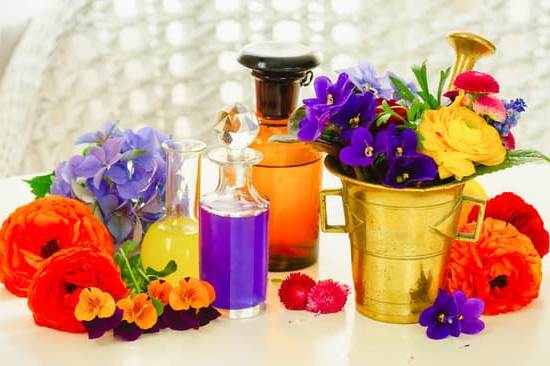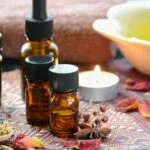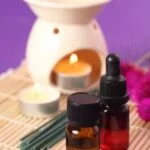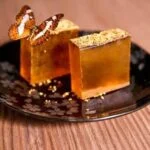Aromatherapy products have gained popularity in recent years for their potential to promote wellness and relaxation. But what are aromatherapy products exactly? These natural products harness the power of essential oils, derived from plants, to create a sensory experience that can have both psychological and physiological effects on the body.
The use of aromatherapy dates back centuries, with ancient civilizations recognizing the therapeutic benefits of natural scents. Today, aromatherapy has evolved into a modern practice that incorporates a wide range of products, from candles to diffusers to roll-ons, all designed to enhance well-being through the power of scent.
Essential oils are the key ingredients in aromatherapy products, each with its own unique properties and benefits. Whether you’re looking to relax, relieve stress, or boost your mood, there is likely an essential oil that can help achieve your desired outcome. In the following sections, we will delve deeper into the history, science, and different types of aromatherapy products available in today’s market.
History of Aromatherapy
Aromatherapy has a rich history that dates back thousands of years, with origins in ancient civilizations like Egypt, China, and India. The use of aromatic plant extracts for healing and wellness practices has been documented throughout history, from religious ceremonies to medical treatments. In fact, the term “aromatherapy” was coined in the early 20th century by French chemist René-Maurice Gattefossé, who discovered the healing properties of lavender essential oil after burning himself and finding relief.
Ancient Practices
In ancient Egypt, aromatic plants and essential oils were used in religious rituals, embalming processes, and medicinal treatments. The Egyptians believed in the power of scents to heal both the body and mind. Similarly, in China, aromatics were used in traditional Chinese medicine to treat various ailments and promote overall well-being. Indian Ayurvedic medicine also incorporated aromatherapy principles by using herbs and essential oils for their therapeutic benefits.
Modern Uses
Today, aromatherapy products have gained popularity worldwide for their natural healing properties and soothing effects on the mind and body. Aromatherapy is now commonly used in spa treatments, massage therapy sessions, holistic wellness practices, and even in household products like candles and diffusers.
The modern approach to aromatherapy focuses on creating blends of essential oils tailored to specific needs such as stress relief, relaxation, sleep enhancement, or immune support. Research continues to explore the efficacy of aromatherapy products in promoting physical and emotional well-being.
As we delve deeper into the history of aromatherapy and its transition into modern uses, it becomes evident that this ancient practice has stood the test of time due to its effectiveness in promoting overall wellness. From its humble beginnings in ancient civilizations to its widespread acceptance today, aromatherapy continues to be a powerful tool for relaxation, rejuvenation, and balance.
Understanding Essential Oils
Aromatherapy products rely heavily on essential oils, which are the key ingredients that give these products their therapeutic properties. Essential oils are concentrated plant extracts that capture the plant’s scent and flavor. These oils are often used in aromatherapy due to their various health benefits and pleasing fragrances. Here is a breakdown of some popular essential oils commonly found in aromatherapy products:
- Lavender: Known for its calming and relaxing properties, lavender essential oil is often used to reduce stress, anxiety, and promote better sleep.
- Peppermint: Peppermint essential oil is invigorating and can help boost energy levels, improve focus, and alleviate headaches.
- Tea Tree: With its antimicrobial properties, tea tree essential oil is commonly used in skincare products to treat acne and other skin conditions.
In addition to these popular essential oils, there are many others with unique benefits such as eucalyptus for respiratory relief, chamomile for soothing effects, and lemon for uplifting mood. When combined in different blends or used individually, these essential oils create a powerful synergy that enhances the overall effectiveness of aromatherapy products.
The Extraction Process of Essential Oils
Essential oils are extracted from various parts of plants through methods like steam distillation, cold pressing, or solvent extraction. Each method ensures that the volatile compounds responsible for the aroma and therapeutic properties of the plant are preserved in the final product. To maintain the purity and potency of essential oils, reputable manufacturers carefully source their raw materials and use proper extraction techniques.
- Steam Distillation: This traditional method involves passing steam through plant material to release the essential oil, which is then condensed into a liquid form.
- Cold Pressing: Commonly used for citrus fruits like lemon or orange, this method involves mechanically pressing the rind of the fruit to extract the essential oil.
- Solvent Extraction: In this method, solvents like hexane are used to extract essential oils from delicate flowers as they dissolve the aromatic compounds present in them.
It’s important to note that not all aromatherapy products contain 100% pure essential oils; some may be diluted with carrier oils or synthetic fragrances. To fully experience the therapeutic benefits of aromatherapy products, it’s recommended to choose high-quality products that clearly state their ingredients and sourcing practices. Understanding the essence of these key ingredients – essential oils – allows consumers to make informed decisions when selecting aromatherapy products that best suit their needs.
Benefits of Aromatherapy Products
Aromatherapy products offer numerous benefits beyond just pleasant scents. These natural remedies have been utilized for centuries to promote wellness and relaxation in individuals. One of the key advantages of using aromatherapy products is their ability to help reduce stress and anxiety levels. Essential oils like lavender, chamomile, and bergamot are known for their calming properties, which can aid in relaxation and improve overall mental well-being.
In addition to psychological benefits, aromatherapy products can also have physical health advantages. Many essential oils used in these products have antimicrobial and anti-inflammatory properties that can help boost the immune system and relieve minor ailments. For example, eucalyptus oil is often used to alleviate congestion, while tea tree oil is known for its antiseptic qualities. By incorporating these natural ingredients into your routine, you can support your body’s overall health and well-being.
Furthermore, aromatherapy products offer a holistic approach to healing by addressing both the mind and body. The therapeutic effects of these products extend beyond just scent; they can positively impact mood, energy levels, sleep quality, and more. Whether you choose to use aromatherapy candles during meditation, apply roll-ons for on-the-go stress relief, or use diffusers to create a calming ambiance at home, incorporating aromatherapy into your daily routine can lead to enhanced overall wellness.
Different Types of Aromatherapy Products
Aromatherapy products come in various forms, each offering unique benefits and applications. Understanding the different types available can help you customize your aromatherapy experience to suit your needs and preferences. Here are some common types of aromatherapy products:
- Candles: Aromatherapy candles are a popular choice for creating a relaxing ambiance in any space. Made with essential oils, these candles release soothing scents when lit, promoting relaxation and stress relief.
- Diffusers: Aromatherapy diffusers are devices that disperse essential oils into the air, allowing you to enjoy the therapeutic benefits of aromatherapy throughout a room. There are different types of diffusers, including ultrasonic, nebulizing, and heat-based models.
- Roll-Ons: Aromatherapy roll-ons are convenient and portable products that allow you to apply essential oils directly to your skin. Simply roll the product onto pulse points like wrists or temples for quick and easy access to the benefits of aromatherapy.
Each type of aromatherapy product has its own unique features and advantages, so it’s important to consider your preferences and needs when selecting the right products for you. Whether you prefer the flickering light of a candle, the continuous diffusion of a diffuser, or the convenience of a roll-on, there is an aromatherapy product out there that will help enhance your well-being.
In addition to candles, diffusers, and roll-ons, there are also other types of aromatherapy products available on the market. These include aromatic sprays, bath salts, massage oils, and even wearable items like necklaces or bracelets infused with essential oils. Exploring the variety of options can help you discover new ways to incorporate aromatherapy into your daily routine and experience its many benefits firsthand.
How to Use Aromatherapy Products
Aromatherapy products can be used in various ways to maximize their effectiveness and benefits. One popular method is using essential oils in a diffuser, which disperses the scent throughout a room, creating a calming or energizing atmosphere depending on the oil used.
Another common way to use aromatherapy products is through inhalation. This can be done by adding a few drops of essential oil to a bowl of hot water and inhaling the steam, or by simply taking a few deep breaths directly from the bottle.
Aromatherapy products can also be applied topically for targeted effects. Roll-on blends are convenient options that can be applied to pulse points, temples, or other areas of the body for quick absorption and relief. Additionally, incorporating aromatherapy products into massage oils or lotions can enhance relaxation and promote overall well-being.
When using aromatherapy products, it’s important to consider safety precautions. Some essential oils may cause skin irritation or sensitivities, so it’s crucial to dilute them properly before applying to the skin. It’s also recommended to do a patch test before using any new product to ensure you don’t have an adverse reaction. By following these tips and techniques, you can make the most of your aromatherapy experience and enjoy the therapeutic benefits of these natural scents.
| Tips for Using Aromatherapy Products | Techniques for Maximum Effectiveness |
|---|---|
| Use essential oils in a diffuser for room-wide effects | Inhalation by adding oils to hot water or taking deep breaths |
| Apply roll-on blends to pulse points for quick relief | Incorporate oils into massage oils or lotions for relaxation |
| Dilute essential oils properly before applying topically | Perform patch tests before using new aromatherapy products |
Choosing the Right Aromatherapy Products for You
Aromatherapy products come in a variety of forms, each offering unique benefits and experiences. When it comes to choosing the right aromatherapy products for yourself, it’s essential to consider your preferences, needs, and desired outcomes. Whether you’re looking for relaxation, a mood boost, stress relief, or even help with sleep issues, there are aromatherapy products to suit every individual.
One popular option when it comes to aromatherapy products is essential oil diffusers. These devices disperse the scent of essential oils into the air, allowing you to enjoy the therapeutic benefits without direct contact with the oil. Diffusers come in different styles and sizes, from ultrasonic diffusers to nebulizing diffusers, providing options for personal preference and space requirements.
For those who prefer a more hands-on approach to aromatherapy, roll-on essential oil blends can be a convenient choice. These pre-diluted oils are ready for topical application and are often used for targeted relief or on-the-go use. Roll-ons are available in various scents and blends tailored to specific needs like headache relief, stress reduction or sleep support – making them a versatile option for customization based on individual requirements.
The Science Behind Aromatherapy
In conclusion, the science behind aromatherapy products delves into the fascinating realm of their psychological and physiological effects on individuals. Aromatherapy has been shown to have a profound impact on one’s emotional well-being by promoting relaxation, reducing stress, and even improving mood. The essential oils used in these products interact with the olfactory system in our bodies, triggering various responses in the brain that contribute to these positive outcomes.
Moreover, the physiological effects of aromatherapy cannot be overlooked. Certain essential oils have antimicrobial properties that can help boost the immune system and fight off infections. Others have analgesic properties that can alleviate pain and discomfort. By understanding how these natural scents work within our bodies, we can harness their therapeutic benefits more effectively.
As individuals explore the world of aromatherapy products, it is important to consider not only the pleasant fragrances they emit but also the powerful impact they can have on both mental and physical health. Whether through diffusers, candles, roll-ons, or other forms of application, incorporating aromatherapy into your daily routine can significantly enhance your overall well-being.
So next time you ask yourself “what are aromatherapy products,” remember that they offer a holistic approach to wellness that encompasses mind, body, and spirit.
Frequently Asked Questions
What Is an Aromatherapy Product?
An aromatherapy product is a type of item that is infused with essential oils or fragrances that are believed to promote relaxation, improved mood, and overall well-being. These products can include candles, diffusers, lotions, and bath salts.
What Are the Three Types of Aromatherapy?
The three types of aromatherapy are topical application, inhalation, and diffusion. Topical application involves applying essential oils directly to the skin through massage or skincare products. Inhalation involves breathing in the scent of essential oils using methods like steam inhalation or a personal inhaler. Diffusion involves dispersing essential oil particles into the air using devices like diffusers.
What Is Considered Aromatherapy?
Aromatherapy is considered a holistic healing treatment that uses natural plant extracts to promote health and well-being. It is based on the belief that inhaling or absorbing these essential oils can stimulate brain function and impact various bodily systems. Aromatherapy is often used to reduce stress, anxiety, pain, improve sleep quality, and boost mood.

Are you looking for a natural way to improve your health and wellbeing?
If so, aromatherapy may be the answer for you.





